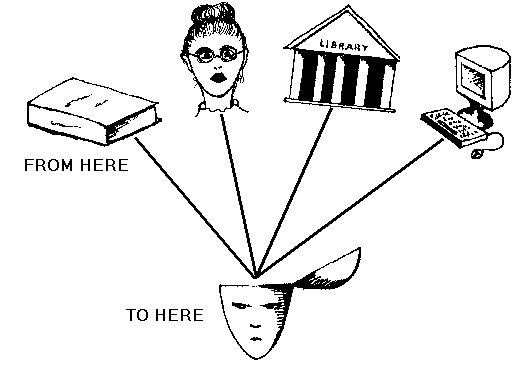"Well, Johnny! What did you learn in school today?"
"Nothing."
"Oh, come on! You must have learned something!"
"Well, yeah, I learned that the Nile is the longest river in the world,
that a short pendulum swings faster than a long one, and that John
Adams was the next president after George Washington. Oh! Almost
forgot! I learned
to say my sixes times table without making any mistakes!"
"Good boy, Johnny! Here's a dollar. Keep up the good work."
The commonsense,
widely shared view of what education is all about is wrapped up in that
brief exchange. Education is thought to be about
information
transfer--moving
information about geography, history, physics and so on from the heads
of those who know to the heads of those who don't.

In establishment jargon, this process of transferring information is
called "inculcating knowledge."
We think of knowledge in quantitative terms. It can be
"passed on," "handed down," "absorbed," "stored up." "Empty-headed"
students "cram" for exams, "pounding information in" until heads are
"stuffed" with knowledge.
"Material" is "covered."
Our
metaphors
mislead us.

